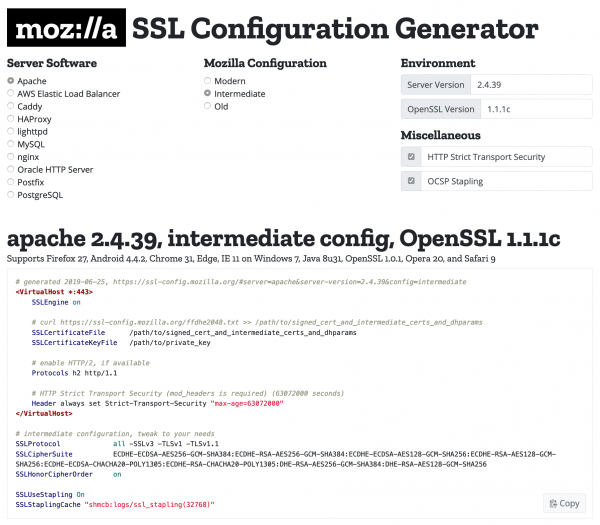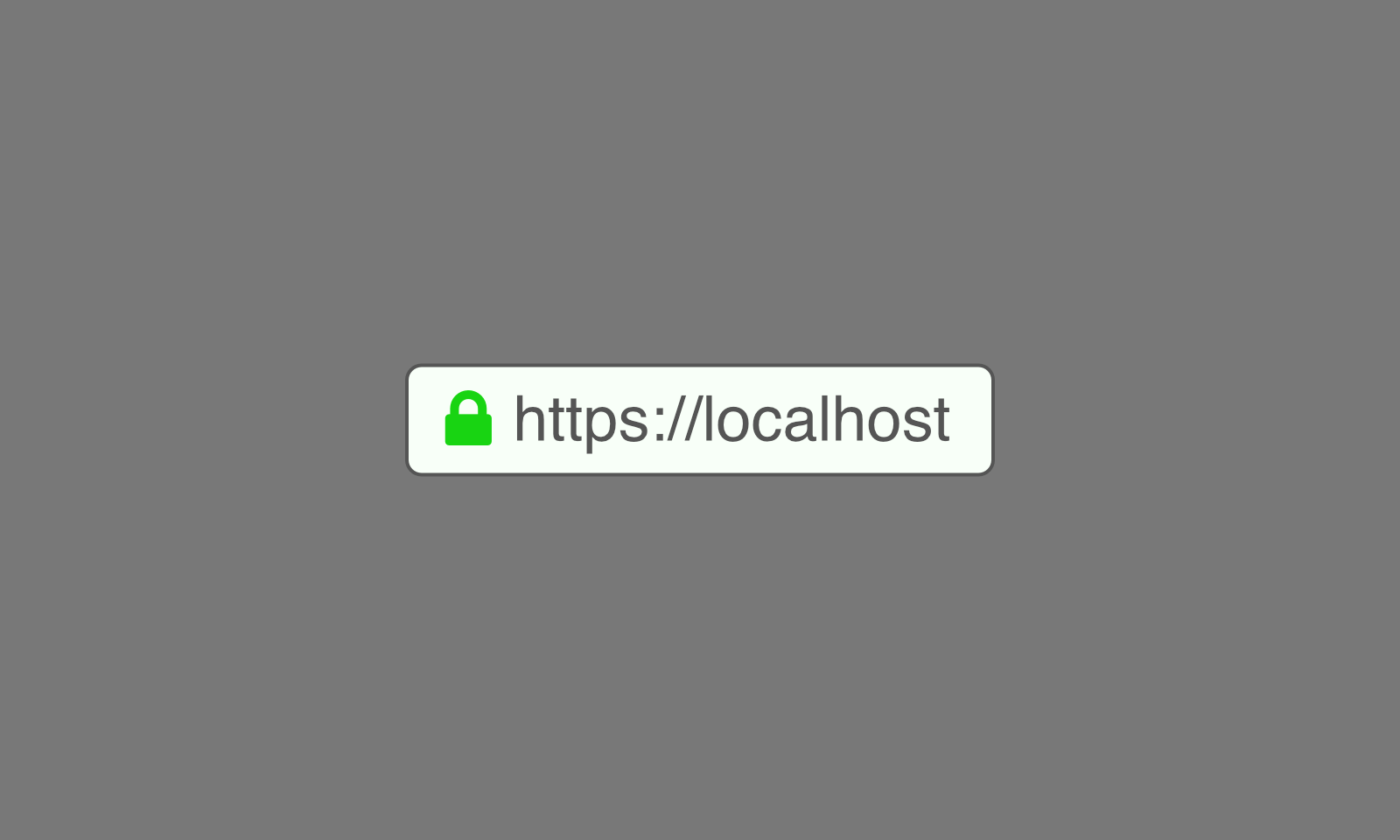So I have installed new python with brewed openssl and finished this issue on Mac, not yet Ubuntu. On Mac OS X version 10.10 and system python version 2.7.6, my procedure is as follows: $ brew update $ brew install openssl Then you can see openssl version 1.0.1j. $ brew link openssl -force $ brew install python -with-brewed-openssl. In my MacBook Pro with El Capitan I have Apache Apache/2.4.16 (Unix) with OpenSSL/0.9.8zg which I need to update to a later version. I tried both to update openssl from brew and to build it. Download the latest version of OpenSSL for Mac - Cryptography library and toolkit that enables developers to work with the TLS and SSL protocols. Read 0 user reviews of OpenSSL on MacUpdate.
PowerShell 7.0 or higher require macOS 10.13 and higher. All packages are available on our GitHubreleases page. After the package is installed, run pwsh from a terminal.
Note
PowerShell 7.1 is an in-place upgrade that removes PowerShell Core 6.x and 7.0.
The /usr/local/microsoft/powershell/6 folder is replaced by /usr/local/microsoft/powershell/7.
If you need to run and older version of PowerShell core side-by-side with PowerShell 7.1, installthe version you want using the binary archive method.
There are several ways to install PowerShell on macOS. Choose one of the following methods:
- Install using Homebrew. Homebrew is the preferred package manager for macOS.
- Install PowerShell via Direct Download
- Install from binary archives.
After installing PowerShell, you should install OpenSSL. OpenSSL isneeded for PowerShell remoting and CIM operations.
Installation of latest stable release via Homebrew on macOS 10.13 or higher
If the brew command is not found, you need to install Homebrew followingtheir instructions.
Now, you can install PowerShell:
Finally, verify that your install is working properly:
When new versions of PowerShell are released, update Homebrew's formulae and upgrade PowerShell:
Note
The commands above can be called from within a PowerShell (pwsh) host,but then the PowerShell shell must be exited and restarted to complete the upgradeand refresh the values shown in $PSVersionTable.
Installation of latest preview release via Homebrew on macOS 10.13 or higher
After you've installed Homebrew, you can install PowerShell. First, install the Cask-Versionspackage that lets you install alternative versions of cask packages:
Now, you can install PowerShell: Sibelius ultimate mac crack software.
Finally, verify that your install is working properly:
When new versions of PowerShell are released, update Homebrew's formulae and upgrade PowerShell:
Note
The commands above can be called from within a PowerShell (pwsh) host,but then the PowerShell shell must be exited and restarted to complete the upgrade.and refresh the values shown in $PSVersionTable.
Installing PowerShell using the Homebrew tap method is also supported for stable and LTS versions.
Update Openssl Mac Os
You can now verify your install
When new versions of PowerShell are released, simply run the following command.
Note
Whether you use the cask or the tap method, when updating to a newer version of PowerShell, usethe same method you used to initially install PowerShell. If you use a different method, opening anew pwsh session will continue to use the older version of PowerShell.
If you do decide to use different methods, there are ways to correct the issue using theHomebrew link method.
Installation via Direct Download
Download the PKG package powershell-7.1.3-osx-x64.pkg from the releases page onto yourmacOS machine.
You can double-click the file and follow the prompts, or install it from the terminal:
Install OpenSSL. OpenSSL is needed for PowerShell remoting and CIMoperations.
Install as a .NET Global tool
If you already have the .NET Core SDK installed, it's easy to install PowerShellas a .NET Global tool.
The dotnet tool installer adds ~/.dotnet/tools to your PATH environment variable. However, thecurrently running shell does not have the updated PATH. You should be able to start PowerShellfrom a new shell by typing pwsh.
Install OpenSSL. OpenSSL is needed for PowerShell remoting and CIMoperations.
Binary Archives
PowerShell binary tar.gz archives are provided for the macOS platform to enable advanceddeployment scenarios. When you install using this method you must also manually install anydependencies.
Install OpenSSL. OpenSSL is needed for PowerShell remoting and CIMoperations.
Note
You can use this method to install any version of PowerShell including the latest:
- Stable release: https://aka.ms/powershell-release?tag=stable
- Preview release: https://aka.ms/powershell-release?tag=preview
- LTS release: https://aka.ms/powershell-release?tag=lts
Installing binary archives on macOS
Installing dependencies
OpenSSL is required for PowerShell remoting and CIM operations. You can install OpenSSL via MacPortsif needed.
Note
MacPorts and Homebrew can have problems when used to together on the same system. However,Homebrew does not have a package for OpenSSL 1.0. For more information, see theMacPorts FAQ.
Install the Xcode command-line tools. The Xcode tools are required by MacPorts.
Install MacPorts. If you need instructions, refer to theinstallation guide.
Update MacPorts by running
sudo port selfupdate.Upgrade MacPorts packages by running
sudo port upgrade outdated.Install OpenSSL by running
sudo port install openssl10.Link the libraries to make them available to PowerShell:
Uninstalling PowerShell
If you installed PowerShell with Homebrew, use the following command to uninstall:
Python Update Openssl Mac
If you installed PowerShell via direct download, PowerShell must be removed manually:
To remove the additional PowerShell paths, refer to the paths section in this documentand remove the paths using sudo rm.
Note
This is not necessary if you installed with Homebrew.
Update Openssl Mac
Paths
$PSHOMEis/usr/local/microsoft/powershell/7.1.3/- User profiles will be read from
~/.config/powershell/profile.ps1 - Default profiles will be read from
$PSHOME/profile.ps1 - User modules will be read from
~/.local/share/powershell/Modules - Shared modules will be read from
/usr/local/share/powershell/Modules - Default modules will be read from
$PSHOME/Modules - PSReadline history will be recorded to
~/.local/share/powershell/PSReadLine/ConsoleHost_history.txt

The profiles respect PowerShell's per-host configuration. So the default host-specific profileexists at Microsoft.PowerShell_profile.ps1 in the same locations.
PowerShell respects the XDG Base Directory Specification on macOS.

Because macOS is a derivation of BSD, the prefix /usr/local is used instead of /opt. So,$PSHOME is /usr/local/microsoft/powershell/7.1.3/, and the symbolic link is placed at/usr/local/bin/pwsh.
Installation support
Microsoft supports the installation methods in this document. There may be other methods ofinstallation available from other sources. While those tools and methods may work, Microsoft cannotsupport those methods.
Additional Resources
OpenSSL is a robust, commercial-grade, and full-featured toolkit for the Transport Layer Security (TLS) and Secure Sockets Layer (SSL) protocols. It is also a general-purpose cryptography library. For more information about the team and community around the project, or to start making your own contributions, start with the community page. To get the latest news, download the source, and so on, please see the sidebar or the buttons at the top of every page.
OpenSSL is licensed under an Apache-style license, which basically means that you are free to get and use it for commercial and non-commercial purposes subject to some simple license conditions.
For a list of vulnerabilities, and the releases in which they were found and fixes, see our Vulnerabilities page.
Latest News
| Date | Item |
| 25-Mar-2021 | OpenSSL 1.1.1k is now available, including bug and security fixes |
| 11-Mar-2021 | Alpha 13 of OpenSSL 3.0 is now available: please download and test it |
| 18-Feb-2021 | Alpha 12 of OpenSSL 3.0 is now available: please download and test it |
| 16-Feb-2021 | OpenSSL 1.1.1j is now available, including bug and security fixes |
| 28-Jan-2021 | Alpha 11 of OpenSSL 3.0 is now available: please download and test it |
| More.. |
Legalities
Please remember that export/import and/or use of strongcryptography software, providing cryptography hooks, or even justcommunicating technical details about cryptography software isillegal in some parts of the world. So when you import thispackage to your country, re-distribute it from there or evenjust email technical suggestions or even source patches to theauthors or other people you are strongly advised to pay closeattention to any laws or regulations which apply toyou. The authors of OpenSSL are not liable for any violationsyou make here. So be careful, it is your responsibility.
